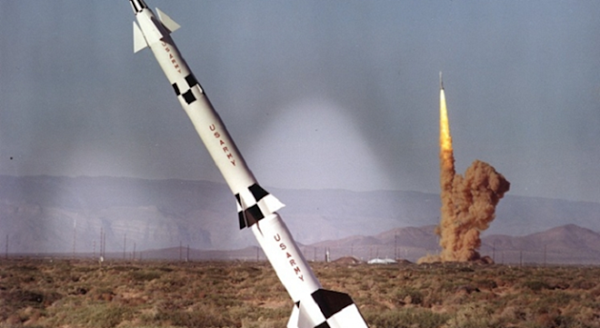Russia admits its vulnerability to US nuclear missiles in Europe
The deployment of American nuclear missiles in Europe, which will become possible once the US withdraws from the 1987 Intermediate-Range Nuclear Forces (INF) Treaty, will render Russia’s “Dead Hand” nuclear response system ineffective, said Colonel-General Viktor Yesin, former head of Russia’s Strategic Missile Troops, in an interview with Zvezda, the Russian Defense Ministry’s official press outlet.
The Dead Hand system, also known as Perimetr in Russia, is operational and has even been enhanced, Yesin noted, but if the US deploys its missiles in Europe after pulling out of the INF Treaty, their flight time will be reduced to 2-3 minutes.
In such a case, even if Dead Hand functions correctly, Russia would only be able to launch the missiles that survive the first attack, Yesin explained.
“Frankly, we do not yet have an effective response to American intermediate range missiles in Europe,” he stressed. “And if the Americans nevertheless start deploying their missiles in Europe, we will have nothing left but to renounce the retaliatory counterstrike doctrine and transition to a preemptive strike doctrine.”
“The appearance of American cruise missiles and intermediate range ballistic missiles in Europe will leave in tatters the retaliatory counterstrike system which is the basis of our nuclear deterrence strategy. In that amount of time, nobody will be able to make a decision or to respond, they simply won’t have time,” agrees Alexei Arbatov, head of the Center for International Security and member of the Russian Academy of Sciences.
“Until 1987, when the INF Treaty was signed, the American Pershings which were in Europe at the time could have, in 10 minutes, sent all our leaders to a better place, that same paradise which Vladimir Putin mentioned at the Valdai forum,” Arbatov explained.
A new arms race would require “tremendous” expenditure, he warned.
“We will have to establish completely new command posts, a new, invulnerable control system, a communication and early warning system, to actively ensure that all our missile systems are ground-mobile, and that they are all reliably protected by aerospace defense systems – S-400, S-500, Pantsir and so on. The costs will, of course, be gigantic, but I don’t doubt that it can be done,” Arbatov commented.
On Sunday, October 21, during his speech in front of his supporters in Nevada, Trump announced that he wants to leave the INF Treaty. “We will not allow anyone to violate the terms of this agreement,” he said. Russia and the United States periodically accuse each other of violating this agreement.
In response to Trump’s words, the Russian Foreign Ministry said that Moscow is ready to respond to Trump’s threat of withdrawing from the agreement. Deputy Foreign Minister Sergei Ryabkov explained that Russia is prepared to respond if Washington continues to withdraw from agreements and arrangements unilaterally. He added that measures against the U.S. could be "of a military-technical nature."
